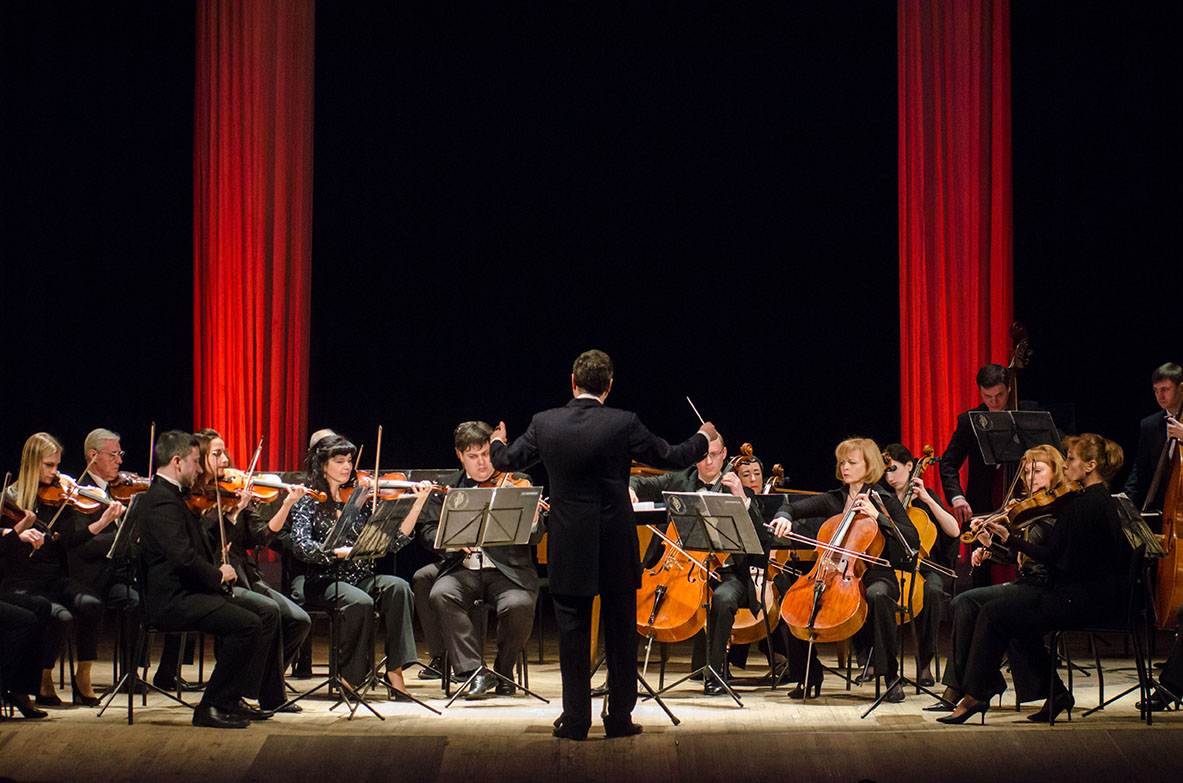

An orchestra is a large group of musicians who play different instruments together. The word "orchestra" comes from the Greek word "orkhēstra," which means "dancing place." In ancient Greece, orchestras were used for performances of plays and dances.
Today, orchestras play a variety of music, including classical, jazz, and pop. They often perform in concert halls, but they can also be found in parks, schools, and other public places.
The instruments in an orchestra are divided into four sections: strings, woodwinds, brass, and percussion. The strings section includes violins, violas, cellos, and double basses. The woodwinds section includes flutes, clarinets, oboes, and bassoons. The brass section includes trumpets, trombones, French horns, and tubas. The percussion section includes drums, cymbals, and other instruments that are played with sticks or mallets.
The conductor is the person who leads the orchestra. They stand in front of the orchestra and use their hands to signal the musicians when to start, stop, and change the tempo. The conductor also decides how the music should be played.
The orchestra is typically made up of stringed instruments, woodwind instruments, brass instruments, and percussion instruments.

Noun: A group of musicians who play together, typically in a theatre or concert hall.
Adjective: Relating to an orchestra.
The word "orchestra" comes from the Greek word "orkhēstra," which means "dancing place." The Greek word "orkhēstra" was the name for the area in front of the stage in an ancient Greek theatre, where the chorus danced and sang.
The word "orchestra" was first used in English in the 16th century. It was used to refer to the group of musicians who played in front of the stage in an opera or other musical performance.
What is an orchestra?